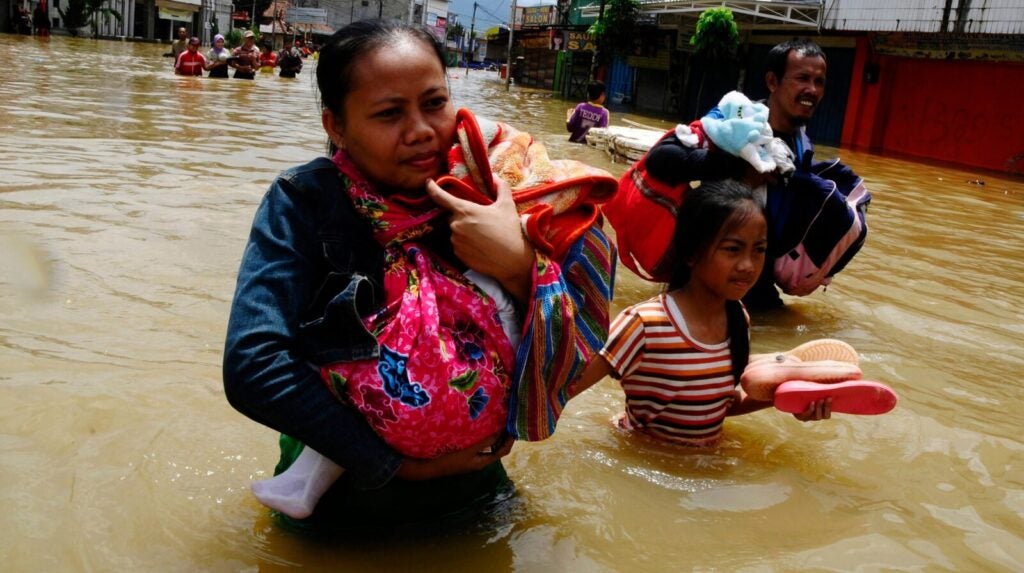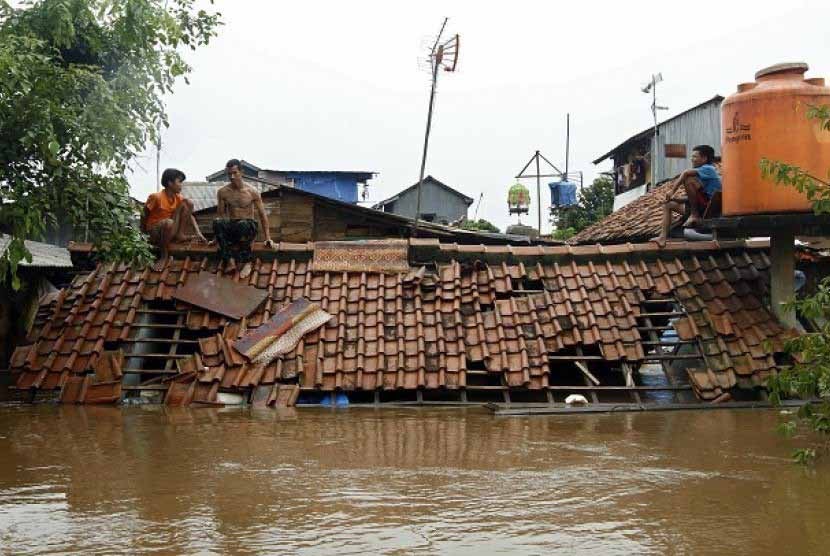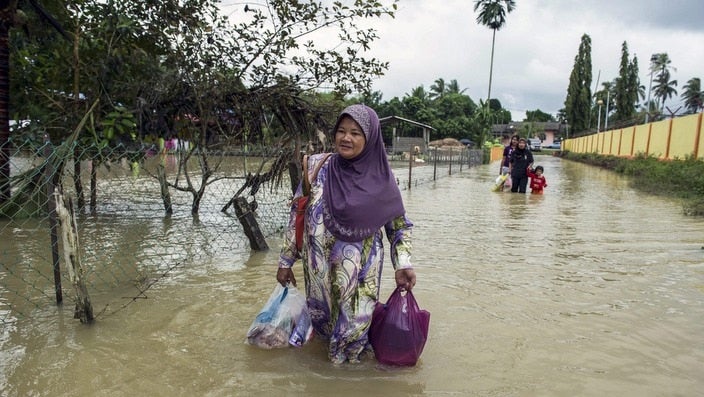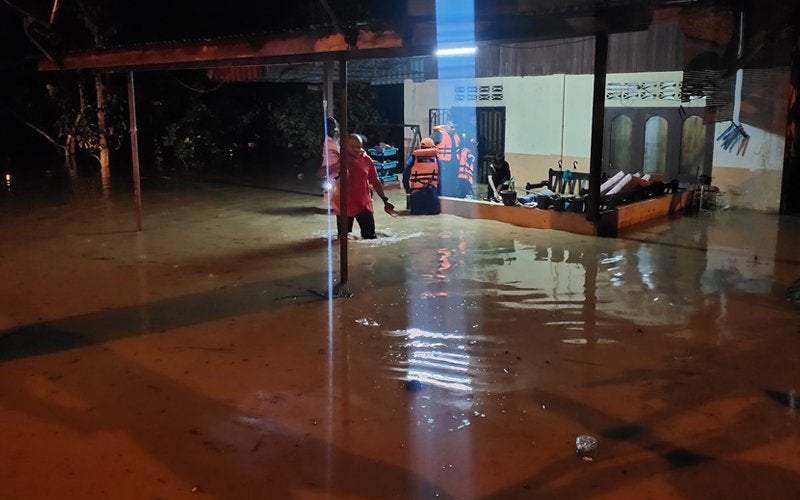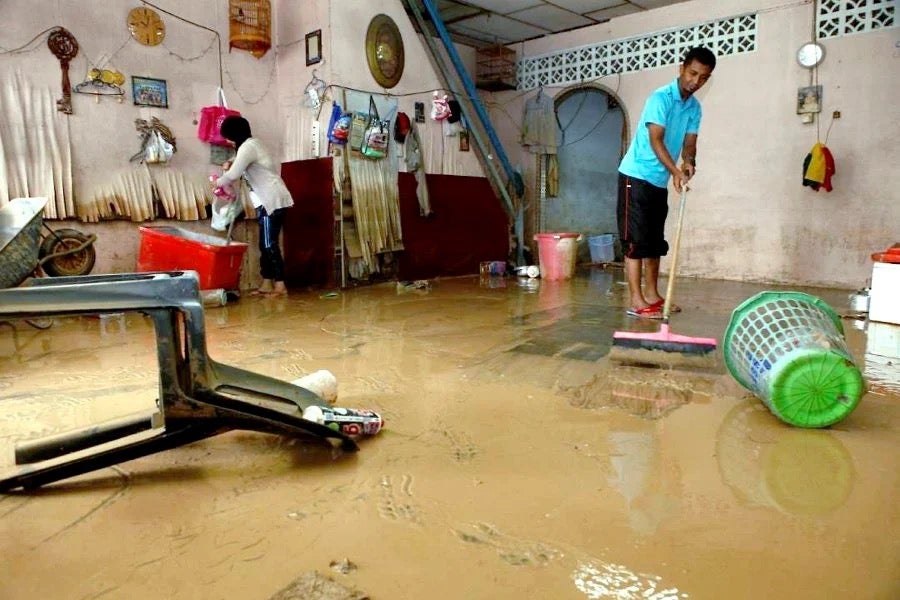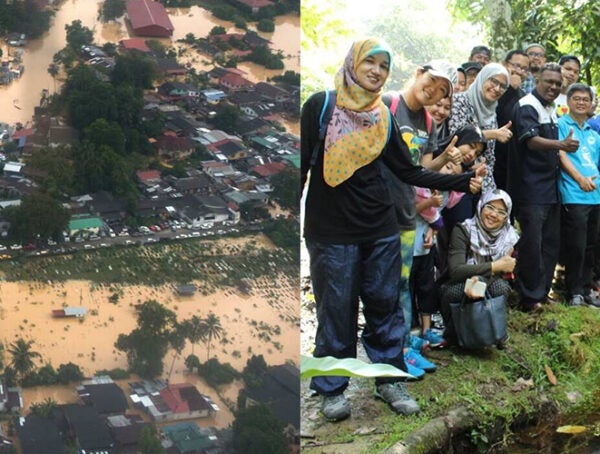Disclaimer: In Real Life is a platform for everyday people to share their experiences and voices. All articles are personal stories and do not necessarily echo In Real Life’s sentiments.
Floods. Malaysia has been having a lot of them since the start of the monsoon season. The storms come and go, but the rain is consistently falling. This has led to floods in multiple states (Pahang, Terengganu, and Kelantan) and is a valid cause for concern in the Klang Valley.
There’s no denying the economic damage, but what about damage to your home and household? No in-depth guide can be given because everyone’s personal situation is different, but here are the most important things you can do to prepare.
1. Prepare a flood evacuation plan
General preparedness means having saved some information on your phone that includes emergency contacts (contacts list), emergency shelter locations, and evacuation routes (Waze).
If the water does begin to rise, you need to have a plan to deal with it. Your evacuation plan must outline what each family member should be doing once the decision is made to PREPARE to evacuate. This can include:
- Who is packing non-perishable food and water supplies?
- Who is putting the pets in their cages/carriers? (don’t forget the pet food!)
- Who is switching off the various mains (water, gas, electricity)?
- Who is securing the important family documents (passports, etc.) and valuables (jewellery or maybe that wedding photo album)?
- Who is moving furniture/items to secured/safe locations within your home?
Make sure that your plan includes a place in the house to act as a gathering point for a headcount check that includes the household pets before piling in the car.
If you know some people who live in the same community as you, it would be good if you can identify any people who might require your assistance: the elderly, disabled people, pregnant women, for example.
2. Secure your personal belongings and valuables
Certain items should be your number one priority. For most of us, that includes:
- Smaller electronics (phones, power banks, chargers, laptops, tablets, etc).
- Personal medication (anything that you take on a daily or as-needed basis ranging from psychiatric medication to asthma inhalers).
- Jewelry of monetary value.
- Documentation (identity documents, passports, bank books, marriage, and other certifications, and medical records).
If you keep all that documentation in a single file/folder, it’s easier to grab in an emergency.
Everyone has a selection of items that they value more than others. Know what you value and find a safe place (high shelves for example) so your valuables stay safe beyond the waters’ reach.
The smaller items? Keep them somewhere easy to access so you can get to and pack them quickly should the worst happen.
Some heavier items (TVs, computers) should be moved to higher ground like the second floor or on top of the highest tables/cabinets available.
3. Prepare your Bug Out Bag (BOB)
A Bug Out Bag is what it sounds like: It’s a single bag that is prepacked with the necessary essentials for when you need to bug out before the water starts rising. Contents will vary from person to person, but the basics are:
- Cash in small bills.
- A bottle of drinking water
- Non-perishable food items (canned foods, cup noodles)
- A small first aid kit
- Toiletries
- A charged power-bank
- A flashlight and spare batteries
- Extra clothes (and underwear)
- Blanket or a jacket (both if they fit in your bag)
- Spare set of keys for the house, car, and other relevant locks
- Laminated photocopies of your identity documents, emergency contacts, closest shelters, and maps to get to them
4. Manage your utilities
The flood will almost certainly hit with minimal time or warning. But the basics can possibly save you a lot of money later.
Turn off the utilities. This means the gas, electricity at the fuse box, shut down any water treatment system (including sewage and sanitation if you have them).
Switch off all wall sockets and unplug everything, including the fridge, oven, water heaters, washing machine, and dishwasher.
Shutting off the utilities and unplugging will prevent nasty surprises when you come home and will make repairs and clean up go that much faster.
5. Communicate!
WhatsApp, Telegram, Discord, WeChat. Signal. Use them. If you cannot get a data line, CALL family and close friends and inform them of your situation. It lets them know you’re on the move so that they won’t worry as much.
If you know people a few streets away, your phone call or message might be the early warning for them to evacuate as well!
If their house is located inside the flood zone, it might still be viable as a temporary refuge or gathering point for those in need of one.
If the location of their house is in a non-flood warning area, ensure that you make arrangements ahead of time so that when the flood does hit, you can head straight there for a safe refuge.
What to do once the storm breaks
The first rule: do not panic! Keep an eye on the news, listen to the radio and then decide if you need to evacuate. If you do, grab the BOBs and implement your evacuation plan and communicate your situation as outlined above!
Otherwise, check the drainage systems and water levels outside your house. If the water starts to rise, grab the BOBs and implement your evacuation plan, and communicate with the relevant parties!
If you get caught out and you’re already trapped by rising floodwater, CALL for evacuation assistance. DO NOT try to be a hero by walking, driving or swimming through the floodwater.
Post flood and aftermath
You should only go home when the authorities have signaled it is safe for you to do so. Don’t rush home.
Make sure you are dressed for it: heavy pants; proper shoes; gloves are a must to avoid injury, especially if you have to wade through the floodwaters. Gloves mean you can grab the most reasonable handholds to steady yourself without risking injuries.
Inspect your fences and gates for damage to locks and hinges. Check doors for signs of warping/bulging. There’s a chance you open the door to unleash a tidal wave of water!
Keep your eyes open for animals that might have tried to take refuge in your house. This could be anything from cats and dogs to snakes, lizards, and even possibly alligators!
Make sure to check the mains before turning anything on. If you didn’t get a chance to shut them off, make sure to check for the smell of gas. If you do smell gas, leave immediately and call the authorities. Don’t forget to check the septic tank/sewage systems for flood damage too!
Cleaning up and getting on
You can also check if you can get any government assistance and aid. Many people online also offer their help to flood victims, from businesses offering free cleaning and repair services to kind folk who are helping with financial assistance and donations for what you may need replaced.
If everything else is in order, reconnect your utilities, start assessing the damage, and get on with the clean-up. The worst part is always the clean-up, but you’ve gotten through the worst of it. You’ll get through this too.
For more stories like this, read: The Worst Habit Malaysians Have: Littering, Snow, Flooding & Droughts: Why Malaysians Need To Care About Climate Crisis & What We Can Do About It, and COVID-19 Cases Have Been Rising Sharply In Malaysia – Here’s A Guide To Keep You Safe.
You might also like
More from Real Skills
How I Saved Almost RM50,000 On Buying My First Car
Here's how this Malaysian man with a RM3,500 salary saved RM50,000 on his first car.
Angry M’sian Boss Demands Unpaid Overtime Over Raya, Causes 9 Staff To Quit
An anonymous employee at a local SME shares how a bad-tempered boss eventually caused 9 staff to quit before Hari …
I Studied In Chinese School As A Malay Boy, Here’s What I Learnt
Every time I used Mandarin outside of school, family members would come up to me at gatherings and ask me …






